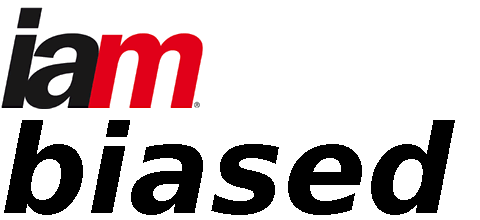

"BlackBerry is Canadian and was, at one point at least, one of the largest technology firms in the country."Steve Brachmann (Watchtroll) seems unhappy about the Canadian government stating that it is going to tackle patent trolls in Canada. It's a real problem, but Watchtroll being Watchtroll would come up with headlines like "Canada’s National IP Strategy Stoking Fears About Patent Trolls" (at least they use the "T" word, "trolls").
Stoking fears? It's a real, legitimate fear that's shared among many companies. The government isn't scaring anyone. Au contraire -- it's trying to reduce fear by assuring that it would tackle the issue.
Watchtroll says: "patent trolls, of course... It’s easy to point to the boogeyman of the patent troll" (it's not merely a "boogeyman" but a real parasite). Canada has many of those, including some rather large ones that we habitually name here. They typically leverage USPTO patents in courts that are plaintiff-friendly (like the ones in the Eastern District of Texas).
"Steve Brachmann (Watchtroll) seems unhappy about the Canadian government stating that it is going to tackle patent trolls in Canada."Speaking of Watchtroll, mind the Watchtroll/IAM overlap again. For the second time in recent months Watchtroll does Joff Wild 'ads'. It's like the patent trolls' lobby unites, mutually amplifying different 'branches' (Patently-O also participates, so it's almost like a love triangle). Wild has just taken stock of their articles and some IAM staff has been trying to suck up to us (perhaps hoping that it would discourage further criticism). Days ago there was this summary/roundup from the latest IAM event. IAM's events actively groom and promote patent trolls i.e. it's collective fronting for those whom/which the real innovators/industries suffer from. Even when people in such events explicitly use the "T" word -- a concept which IAM denies -- IAM adds scare quotes. As if patent trolls are merely a myth.
IAM wrote: "Erin Wiggins of TS Tech America - we do see "troll" litigation as one of the bigger problems the industry is going to face..."
I asked IAM: "Did Wiggins say "inverted commas"? Or use the hands to signify this? Or did IAM, which protects trolls, decide that it merits scare quotes? I'm guessing the latter."
Here are "inverted commas" again: "Audi's Kai Brandt - probably the biggest result from car litigation wars that we're expecting will be that they might change the European and especially the German IP systems as much as the "troll" wars have changed the US IP system..."
"3G Licensing, as its name serves to suggest, does not actually make anything."Why the scare quotes? By American conventions, those are scare quotes (British conventions are pretty much the opposite).
Do we still need to even argue over 1) whether patent trolls exist and 2) whether they harm the economy? Many studies have been conducted on the subject, including several by Professor Bessen in Boston.
In related news, regarding S3G Technology LLC v UniKey Technologies, Inc. (at the Eastern District of Texas), some patent courts seem to be 'advertising' themselves by being overzealous against defendants/accused. To quote this new example:
The court granted in part plaintiff's motion to exclude the testimony of defendant's damages expert regarding prior settlement agreements because the expert was not authorized to review one agreement under the protective order.
In 2017, 3G Licensing filed its infringement lawsuit in Delaware Federal Court — accusing both HTC Corp. (a Taiwan Corp.) and HTC America (its US Subsidiary based in Washington State) of infringement. Following TC Heartland, the District Court found that venue was improper for HTC America, but allowed the action to proceed against the foreign company HTC Corp.
[...]
In what appears to me as dicta, the Federal Circuit went on to explain its position that the Delaware court is a proper venue for the foreign corporation. Rather, according to the court, TC Heartland did nothing to disturb the “long-established rule that suits against aliens are wholly outside the operation of all the federal venue laws, general and special.”
[...]
As a result of the possibility that a foreign company might not fit within the Venue statute, the Supreme Court in Brunette held that venue is proper for a foreign corporation in any judicial district where accused is subject to personal jurisdiction. In other words “the venue laws do not protect alien defendants.”